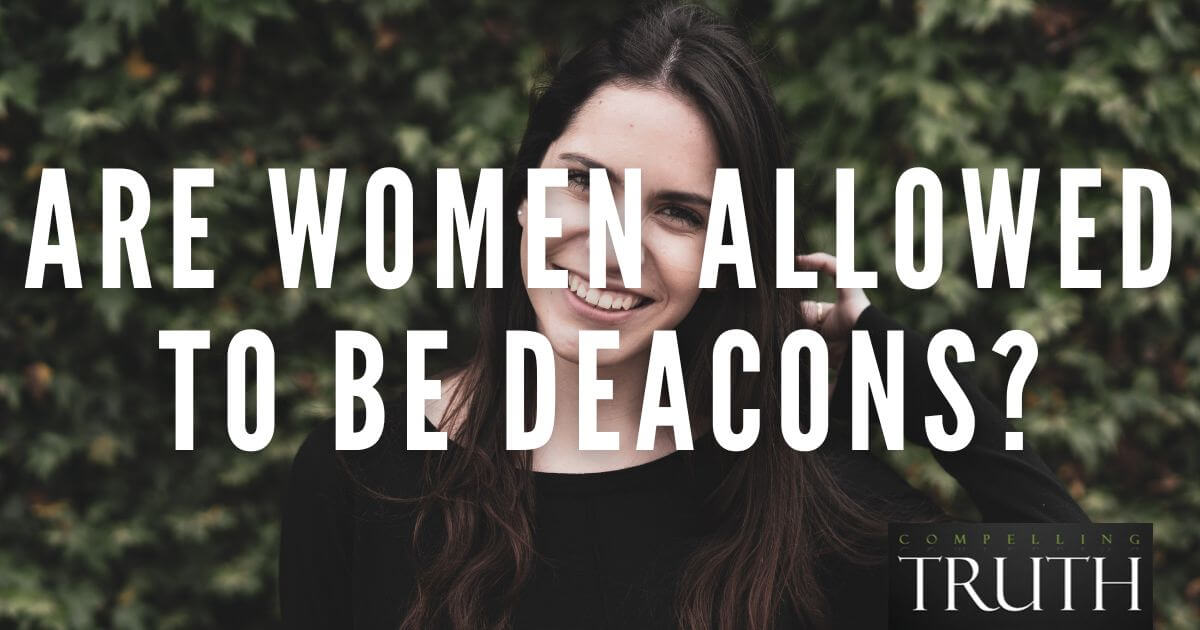Complementarianism and egalitarianism are two views used to describe the role of women in the church. Complementarianism is the view that women are limited regarding leadership roles in the church (such as elder/pastor or deacon). Egalitarianism is the view that women can serve in all forms of church leadership, including ordination as pastors.
The egalitarian view is based on the biblical view that men and women are both one in Christ. For example, Galatians 3:28 states, "There is neither Jew nor Greek, there is neither slave nor free, there is no male and female, for you are all one in Christ Jesus." The weakness of this view, however, is in dealing with the New Testament passages that define the requirements of elders in 1 Timothy 3:1-7 and Titus 1:5-9.
The complementarian view agrees that men and women are equal in Christ yet that God has specified different roles for men and women regarding church leadership. This view is based on several details found in 1 Timothy 3 and Titus 1. These include the use of exclusively male pronouns related to elders, that elders are to be the husband of one wife (something only a man could do), and that no examples exist of a female elder/pastor in the New Testament.
The complementarian view finds the most biblical support, as the case for a female elder/pastor is one that must be made from silence. The egalitarian view often refers to examples such as Junia in Romans 16:7, who is sometimes viewed as being called an apostle (though not all agree to this interpretation), Phoebe as a deacon in Romans 16:1 (though the general title of servant is more likely), and to the four daughters of Philip in Acts 21:9 who prophesied. If there were female apostles, deacons, and prophets, it is argued, then why could there not be female elders/pastors?
Again, this argument is an argument from silence. Even the parallel examples of female deacons and apostles are disputed, though 1 Timothy 3:11 may possibly speak of female deacons (literally "women" or likely the wives of the deacons). As a result, the most likely interpretation is that women were not elders in the New Testament and that this teaching was one that extends to today.
While there are Christians who hold to both views, a look at the biblical evidence shows a higher likelihood that the complementarian view is more accurate. The focus of this argument is ultimately not the value of men versus women but to God's roles for church leadership under the ultimate leadership of Christ (1 Corinthians 11:3). Jesus is the head of the church and the elders of the church serve under Him to lovingly shepherd the flock of God.
The egalitarian view is based on the biblical view that men and women are both one in Christ. For example, Galatians 3:28 states, "There is neither Jew nor Greek, there is neither slave nor free, there is no male and female, for you are all one in Christ Jesus." The weakness of this view, however, is in dealing with the New Testament passages that define the requirements of elders in 1 Timothy 3:1-7 and Titus 1:5-9.
The complementarian view agrees that men and women are equal in Christ yet that God has specified different roles for men and women regarding church leadership. This view is based on several details found in 1 Timothy 3 and Titus 1. These include the use of exclusively male pronouns related to elders, that elders are to be the husband of one wife (something only a man could do), and that no examples exist of a female elder/pastor in the New Testament.
The complementarian view finds the most biblical support, as the case for a female elder/pastor is one that must be made from silence. The egalitarian view often refers to examples such as Junia in Romans 16:7, who is sometimes viewed as being called an apostle (though not all agree to this interpretation), Phoebe as a deacon in Romans 16:1 (though the general title of servant is more likely), and to the four daughters of Philip in Acts 21:9 who prophesied. If there were female apostles, deacons, and prophets, it is argued, then why could there not be female elders/pastors?
Again, this argument is an argument from silence. Even the parallel examples of female deacons and apostles are disputed, though 1 Timothy 3:11 may possibly speak of female deacons (literally "women" or likely the wives of the deacons). As a result, the most likely interpretation is that women were not elders in the New Testament and that this teaching was one that extends to today.
While there are Christians who hold to both views, a look at the biblical evidence shows a higher likelihood that the complementarian view is more accurate. The focus of this argument is ultimately not the value of men versus women but to God's roles for church leadership under the ultimate leadership of Christ (1 Corinthians 11:3). Jesus is the head of the church and the elders of the church serve under Him to lovingly shepherd the flock of God.



